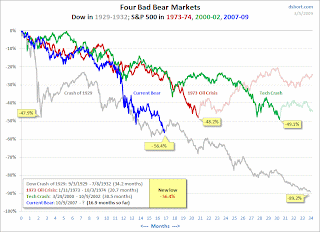Here is my take on trickle down economics. In part two, I will examine whether these assumptions have played out in the real world.
The concept of trickle-down economics holds that higher taxation rates reduce the value of the marginal dollar (the last dollar earned) to the point that they reduce the propensity to work since reward for working additional hours is diminished.
Concomitant with this is the assumption that those at the top of the income stream are responsible for a higher net impact on the economy than those at the lower end, through a combination of investment and consumption (which is a form of investment as well).
It follows therefore that trickle-down proponents believe that reducing tax rates at the top of the income spectrum will increase the incentive to work by increasing the value of the marginally earned dollar. It further follows that this increase will benefit the economy to a relatively larger degree than would a reduction on taxes on someone at the bottom of the income spectrum.
Logically following from this are the following assumptions:
1. Those who earn more contribute more, relatively, to the overall economic well-being of the society than those who earn less.
2. The more that a high earner makes, the more they can contribute – this is independent of the rate of wage gain of the lower wage earner.
3. Therefore, it is to the benefit of society to maximize the gains of the earners at the top of the income spectrum without regard to gains at the lower end of the spectrum – this is especially true given the assumption that the high income earner will contribute to overall societal well-being and therefore will be responsible – through job creation or wage growth – for benefits that fall on the those at the bottom of the income spectrum.
4. In a rising economy, significant reductions in upper tier marginal tax rates should lead to more rapid growth of incomes among those at the top of the earning spectrum than at the bottom since a rising economy is generally indicative of increased earnings and investment by businesses (business owners). I.E. Incomes in general will rise in a growing economy but growth disparity should increase in a rising economy in favor of the high earner.
5. The incentive to work hard being analogous to the incentive to reach the top of the income spectrum (or the highest level attainable given one’s education, etc.), greater reductions in tax rates at the top – which would result per force, in an increase in income wage growth disparities (see point 4) – should result in a more rapid increase in growth and income disparity
Times of increasing income growth disparity should indicate that those at the top are earning more, faster than those at the bottom. This greater and faster income growth should lead to a “trickle down” effect in good times and bad.











